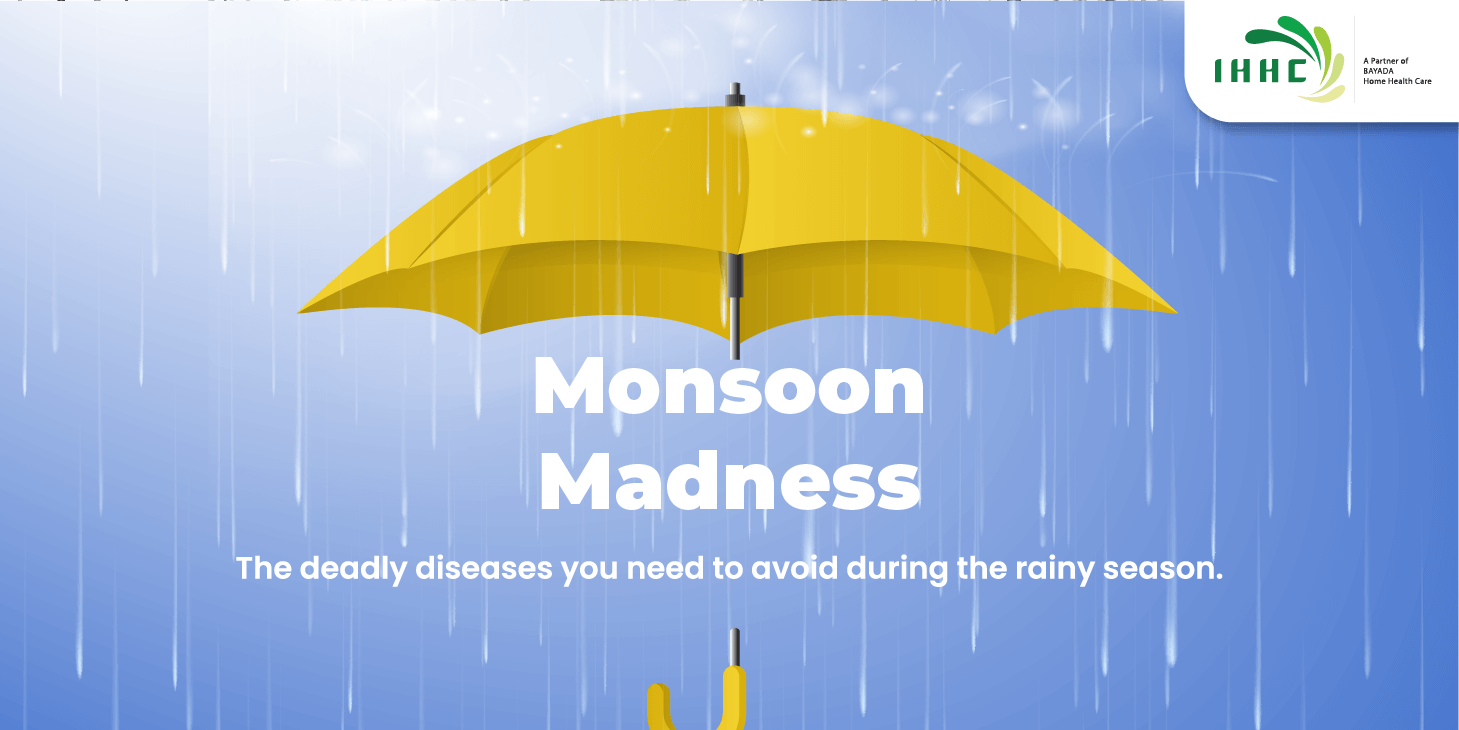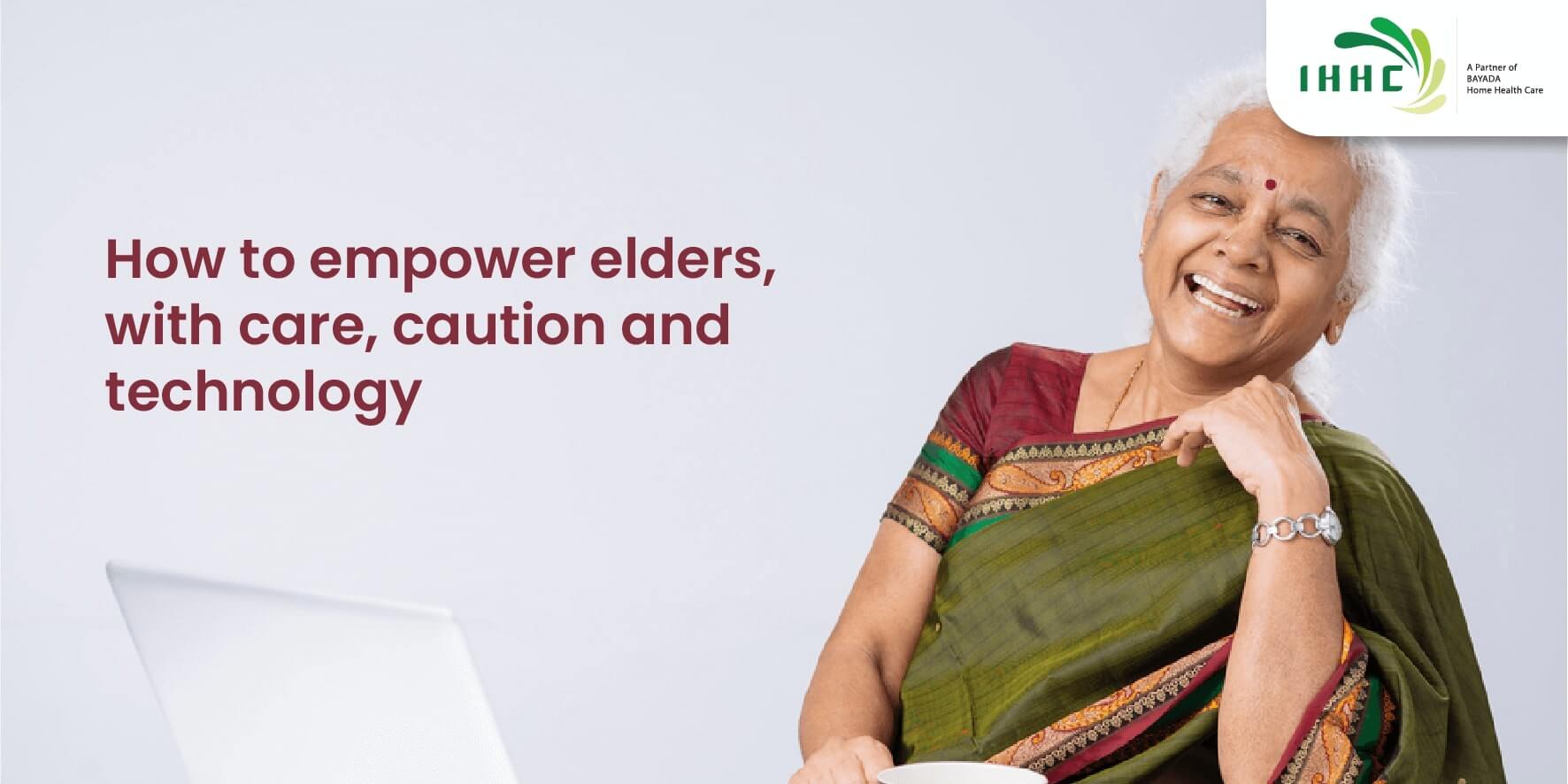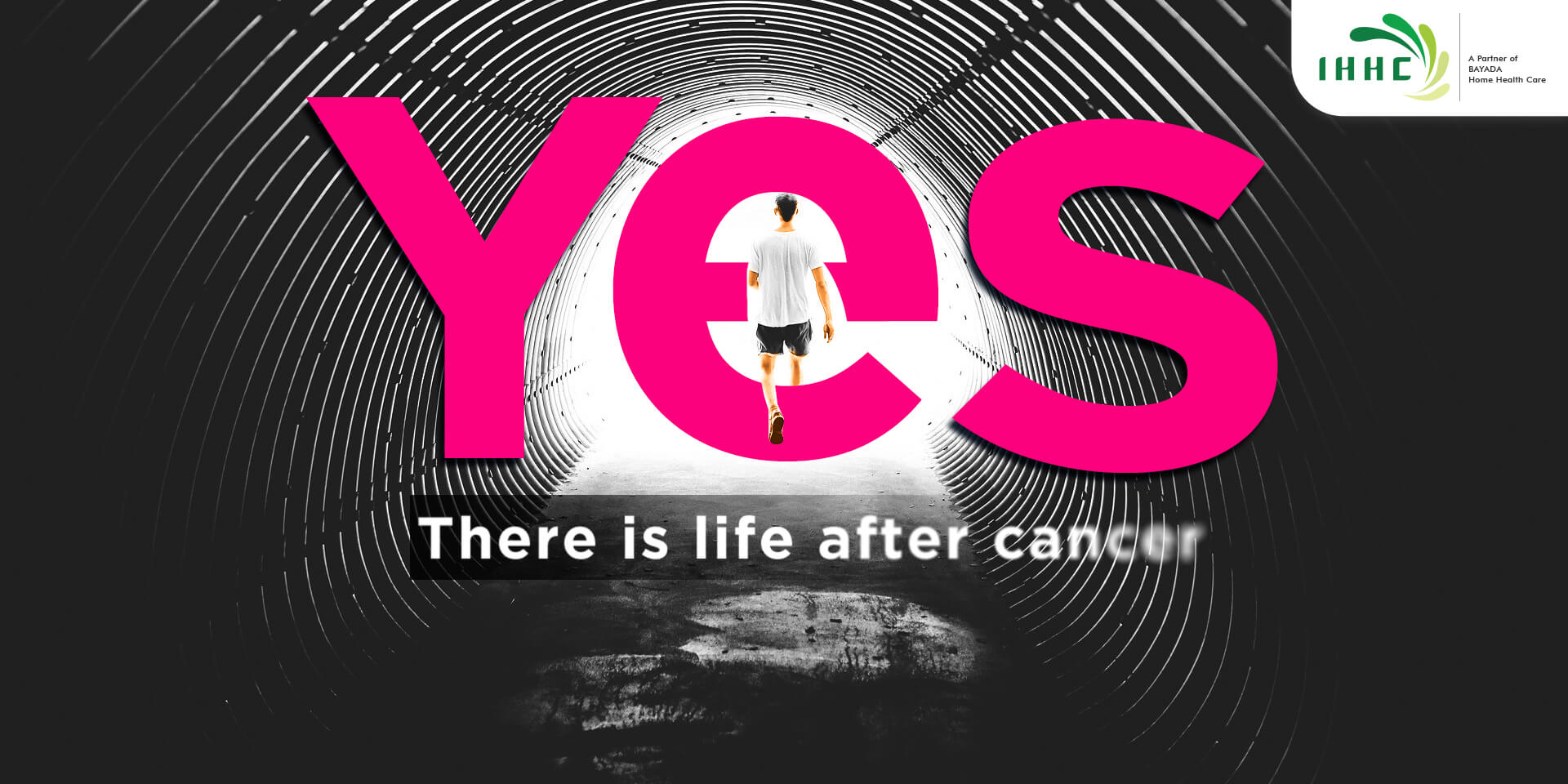Is there a need for home healthcare in India?
We all wait, with bated breath every year, for the rains to arrive. To give us relief from the scorching heat during the hot, dry summers of north India, the enervating humidity of the coastal areas, the dry, parched blanket of heat in the arid plains. But, with the respite and life giving properties of the healing rains, the monsoon also brings various illnesses – some very inconvenient but not serious and others deadly and fatal.
Every monsoon, the risk of catching variety of diseases is extremely high due – largely due to unhygienic living conditions and not taking basic preventive measures. Since many of these monsoon diseases remain undiagnosed until undesirable complications set in, early diagnosis and treatment is critical – often making the difference between life and death. Here are some common diseases you should be aware of that are prevalent during this season; it’s also crucial that you understand the preventive measures that should be taken and the precautions that you and your family should invest in.
The monsoon is a busy season for laboratories, clinics and hospitals across the country, since with the monsoon arrive swarms of unwanted and highly infectious viruses and bacterial diseases that do their best to lay low the common man, in various forms. Cold and cough, Malaria, Dengue, stomach infection, Diarrhoea, viral fever, Typhoid and Pneumonia - are just some of the diseases which make it to the top of the medical practitioners’ lists.
Malaria
One of the most common monsoon diseases, Malaria, is caused by certain species of mosquitoes breeding in dirty, stagnant water. A one-celled parasite, called plasmodium, causes malaria. About 170 species of plasmodium exist, but only four cause malaria in humans. Malaria is typically diagnosed by the microscopic examination of blood using blood films, or with antigen-based rapid diagnostic tests.
Symptoms
- High fever
- Body ache
- Moderate to severe chills
- Fall in body temperature resulting in excessive sweating
- Headaches
- Nausea
- Vomiting
- Diarrhoea
Potential complications
If untreated, it can lead to jaundice, severe anaemia, even liver and kidney failure.
Treatment
Malaria is generally treated with antimalarial medications.
Prevention
- Antimalarial drugs should be taken as a precautionary measure in mosquito prone areas
- Guard against mosquito bites by wearing full sleeve clothing
- Apply anti-repellent mosquito creams
- Use electronic mosquito repellent devices to prevent mosquito’s entering your home
- Keep the surrounding area around your home dry and free of dirty water to prevent malaria mosquito breeding
- Insecticide-treated mosquito nets (ITNs) and indoor residual spraying (IRS) can be highly effective in preventing malaria
- Do not store water for long periods of time as the stored water will attract mosquitos
Typhoid
Typhoid is yet another waterborne bacterial infection carried by a bacteria called Salmonella. It is caused by contaminated food or drinking water contaminated by the faeces of an infected person. It is diagnosed by blood, bone marrow or stool cultures, and by the Widal test. The worst part is that this disease can remain in the gall bladder of the patient even after he/she is cured.
Symptoms
- Prolonged high fever, often as high as 103 or 104 F (39.4 or 40 0C)
- Weakness and fatigue
- Sore throat
- Diarrhoea or constipation
- Severe abdominal pain
- Headaches
- Rash
- Vomiting
Treatment
Typhoid is treated with antibiotics such as azithromycin, fluoroquinolones or third generation cephalosporin.
Prevention
- Ensure clean drinking water
- Better sanitation
- Consistent and improved handwashing
- Avoiding drinking un-treated water
- Avoiding uncooked and raw food – opt for cooked food
Hepatitis A
This is a very contagious liver infection caused by the Hepatitis A virus. It is a waterborne viral infection, generally caused by drinking water or food contaminated by the faeces of someone with the virus, or it can be spread by flies. Eating fruits, vegetables and other foods that have been contaminated while being handled can also spread the infection.
Symptoms
The symptoms are the result of inflammation of the liver, caused by the virus. Blood tests are used to detect the presence of the Hepatitis A virus in your body. Symptoms include:
- Jaundice (yellow eyes and skin, dark urine)
- Stomach ache
- Loss of appetite
- Nausea
- Fever
- Diarrhoea
- Fatigue
Treatment
There is no specific treatment for Hepatitis A. Generally doctors prescribe a regimen of Liv 52 tablets. In most cases the liver heals by itself within six months, with no lasting damage being done. The management of the disease involves:
- Rest
- Treating the nausea
- Not putting stress on the liver
- Eating non-spicy, oil-free and light foods
- No alcohol consumption till the liver is completely free of the disease
- Practicing good hygiene, including washing hands frequently.
- Initially using separate towels, plates and other utensils for the patient
Vaccines are available for people most at risk.
Dengue Fever
Dengue is caused by a family of viruses that are transmitted by mosquitoes. It is spread by the tiger mosquito which has black and white stripes and typically bites early in the morning or during the day. Blood tests are always done for a positive diagnosis of Dengue fever as the virus causes blood platelets to drop to dangerous levels.
Symptoms
- Severe joint and muscle pain
- Swollen lymph nodes
- Headache
- Fever
- Tiredness and fatigue
- Rash
Potential complication
One of the complications is Dengue haemorrhagic fever (DHF). It is a specific condition that tends to affect children under 10 years. This syndrome causes abdominal pain, haemorrhage (bleeding), and circulatory collapse (shock).
Treatment
There are no specific antibiotics or antiviral medication to treat Dengue fever. For the typical dengue patent, the treatment focuses on:
- Relieving the symptoms
- Rest and fluid intake (oral rehydration) is advocated
- Pain relievers, such as aspirin and nonsteroidal anti-inflammatory drugs, should only be taken under a doctor's supervision
- Pain killers can be given for headache, joint and muscle pain (myalgia)
- Platelet count should be monitored throughout the illness
- Sometimes hospitalization is advised, depending on the patient’s condition, to allow for IV drips
Prevention
- You should apply a strong insect repellent containing DEET, to prevent getting bitten when out and about
- Wear full sleeve clothing outdoors, during the day
Always keep in mind that the Dengue mosquito usually bites during the day and breeds in clean, fresh water. So, any water accumulation should be avoided.




